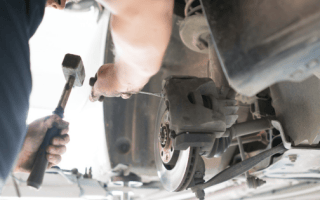The rising cost of living can put a significant strain on family budgets, particularly when unexpected home repairs arise. As homeowners, understanding how to minimize expenses in maintaining our homes is crucial to financial stability. This article will offer practical strategies to help you save money on home repairs while ensuring the safety and functionality of your living space.
Regular Maintenance for Longevity
Preventive maintenance is one of the most effective ways to prolong the life of your home components and save money in the long run. By routinely inspecting areas of high wear and tear, such as the roof or plumbing systems, you can spot potential issues before they become costly repairs. Staying proactive with maintenance helps you avoid emergency repairs that often come with premium service prices.
According to a Consumer Affairs study, garage doors can last between 15 to 30 years if they are properly maintained. Regular lubrication of moving parts and annual inspections can prevent expenses related to replacements or major repairs. By investing a small amount of time in basic upkeep, you can stretch the longevity of various home components and save money on frequent replacements.
Routine checks on appliances, electrical systems, and structural elements also help in making your home more efficient. When these elements function optimally, they consume less energy, translating to lower utility bills. Simple acts like sealing windows and doors to prevent drafts can result in significant savings over time, illustrating that a little maintenance can lead to substantial long-term financial benefits.
The Importance of Inspections
Annual home inspections are a crucial part of managing home repair costs as they can identify potential issues early. Professional inspectors can detect problems that may not be visible to the untrained eye, such as foundational shifts or hidden mold growth. Addressing these issues before they escalate can save you a considerable amount of money.
According to the Chimney Safety Institute of America, there are an average of 25,000 chimney fires annually in the U.S., primarily caused by neglect. Regular chimney inspections can prevent such hazardous events, saving both property and hefty repair bills. Inspecting other areas such as heating systems or water heaters can help identify inefficiencies and potential hazards, thus minimizing risk and repair costs.
Scheduling inspections might have upfront costs, but they are a valuable investment in maintaining the integrity of your home. Consider these check-ups akin to regular medical visits that keep your health in check. Similarly, by maintaining the health of your home, you reduce the risk of large-scale repairs, ultimately saving money over time.
DIY Repairs and Improvements
Tackling small repairs and upgrades yourself can substantially reduce home maintenance expenses. By learning basic skills and understanding how to use essential tools, you can address minor issues such as leaky faucets or changing a light fixture. With numerous online resources and tutorials, even those with minimal experience can perform many small tasks safely and effectively.
It’s important to know your limits when it comes to DIY, as tackling major repairs without the necessary expertise can lead to greater issues. According to Ruby Home, over 33% of homeowners replace their roofs because of leaks, a task often requiring professional intervention. While DIY can save money, calling a professional ensures critical jobs are handled properly and safely, preventing costly mistakes.
Focusing on small, manageable projects can empower you to keep your home in good condition without excessive spending. Not only does this approach save money, but it also increases your home’s value. Completing small renovations yourself enables you to customize your space to better suit your needs and lifestyle, adding to your sense of investment in your living environment.
Smart Shopping for Materials
When home repairs are necessary, purchasing materials during sales or using off-season discounts can help save money. Researching and comparing prices from different suppliers ensures you get the best deal for quality materials. Be on the lookout for clearance sales and bulk purchase discounts, which can help decrease overall expenses.
Salvaged or recycled materials can also be a cost-effective alternative. They not only help in saving money but also add a unique charm to your home with their history and character. By focusing on sustainability, you contribute to environmental conservation while reducing repair costs.
Implementing strategies such as membership programs at hardware stores or using coupons can further cut expenses. These small steps make a significant impact on your total repair budget, demonstrating that financial prudence goes a long way in maintaining your home without breaking the bank.
Budgeting and Planning Ahead
Establishing a dedicated budget for home repairs is an essential part of saving money. Set aside a fixed amount each month to prepare for unforeseen repairs, which can help prevent financial strain when they occur. An emergency fund not only alleviates stress but also provides the means to address issues promptly, avoiding further damage or expense.
Planning ahead is another vital aspect of cutting repair costs. Keep a detailed record of maintenance schedules and future repair needs to avoid reactive spending. With this knowledge, you can prioritize repairs and allocate resources efficiently, ensuring that urgent repairs are addressed first.
Being organized and informed about your home’s needs allows you to make smarter financial decisions. By maintaining a clear overview of upcoming projects, you set a path for effective money management, ensuring your home remains a sanctuary free from financial anxiety.
In conclusion, saving money on home repairs requires a combination of proactive maintenance, informed decision-making, and strategic budgeting. By taking steps to regularly inspect and maintain your home, addressing repairs promptly, and wisely managing financial resources, you can avoid the burden of unexpected, costly repairs. These practices ensure that your home remains a comfortable and cost-effective haven for years to come.






Comments